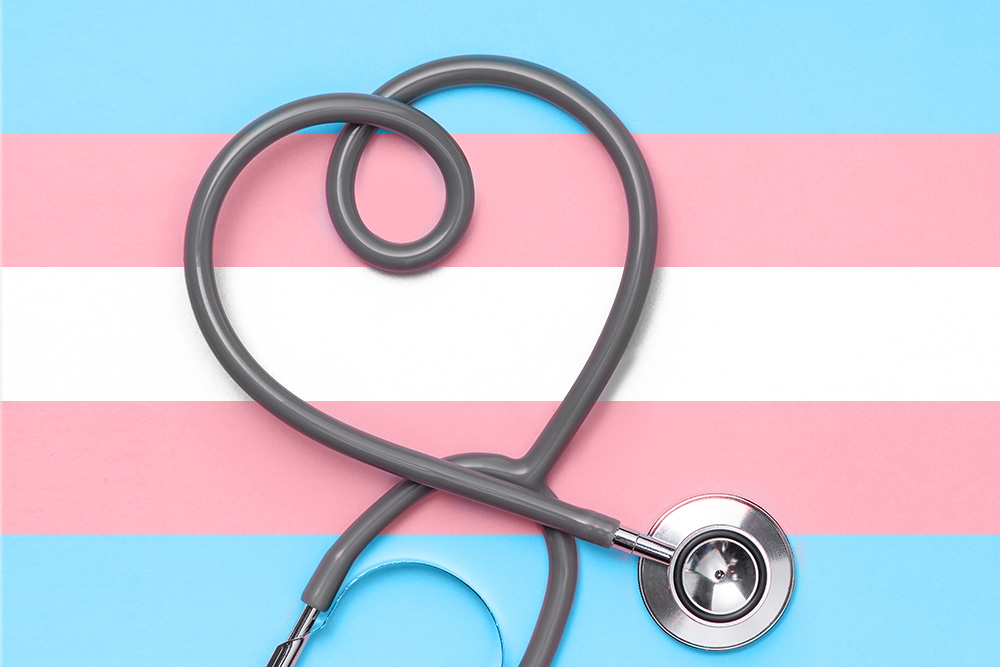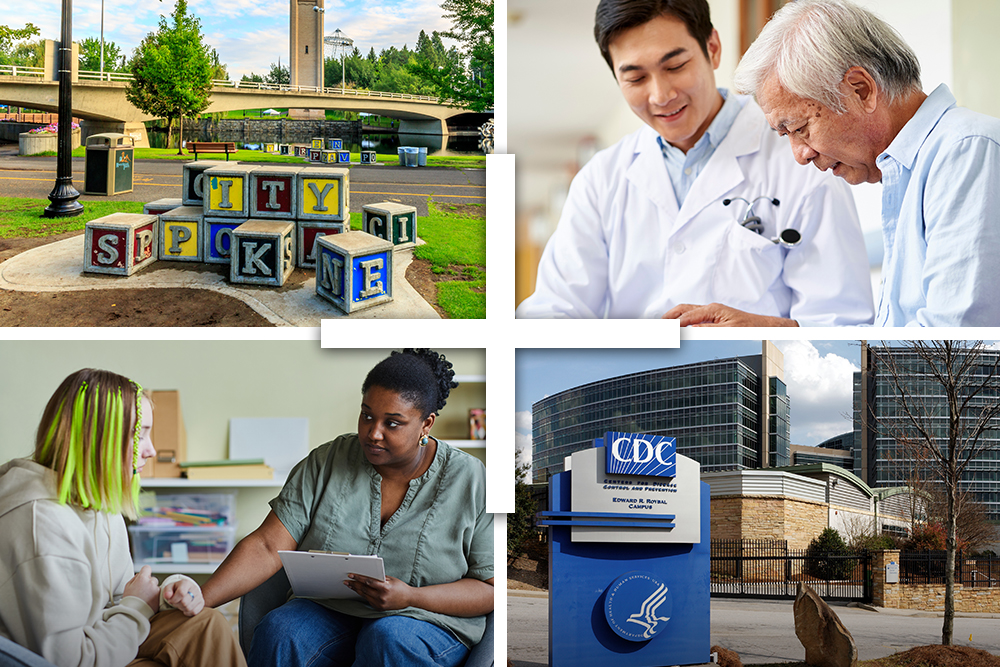February 27, 2024. In this one-hour webinar, which is part of the Hot Topics series, Paula Kett, PhD, MPH, RN, a research scientist at the University of Washington’s Center for Health Workforce Studies, and Dany Zemmel, MPH, the Training and Engagement Manager at the Region V Public Health Training Center, will focus on the components of public health practice that are important for health equity competencies. They will also discuss recommendations to improve workforce development and training, such as explicit naming of the effects of structural racism, application of new concepts, and skill development. These skill areas include identifying, influencing, and implementing policies, community engagement, and cross-sector partnership building.
Learning Objectives
- Describe two to three factors associated with greater knowledge of and confidence in addressing health equity among governmental public health staff
- Identify at least two characteristics associated with staff-reported involvement in work to address racism as a public health crisis
- Discuss recommendations to improve workforce development and training focused on advancing health equity

January 30, 2024. In this one-hour webinar, which is part of the Hot Topics series, Josh Gryniewicz, CEO of the social change consultancy Odd Duck, will focus on strategies to navigate deceptive messaging across the media. Josh will discuss the misinformation continuum, with a special emphasis on distrust, the importance of storytelling and building trust, and other essential keys to navigating misinformation. He will then discuss actions that will help public health practitioners build trust for pro-health outcomes in their communities.
Learning Objectives
- Assess the types of misinformation/disinformation that infect a media ecosystem
- Define the five essential keys to navigating a media ecosystem to build trust
- Establish concrete actions community-based organizations can take to navigate a complicated media ecosystem

December 19, 2023. During this one-hour webinar, which is part of the Hot Topics series, Beau Ohlgren, MSc, Jefferson County Transgender Support Group leader, and Jackie Levin, MS, RN, Patient Advocate and Transgender Care Navigator, will focus on gender-affirming care strategies implemented at Jefferson Healthcare. This rural care network has been a leader in exploring unique approaches for providing successful, equitable care to trans and gender nonconforming patients. Beau and Jackie will articulate reasons for the value of gender-inclusive care, with a special emphasis placed on inclusive care training for all staff. They’ll identify barriers within facilities that can affect trans and gender nonconforming patients and will help describe a path forward to compassionate care for all.
Learning Objectives
- Describe the value of gender-inclusive care.
- Understand the importance of gender-inclusive training for all staff.
- Identify barriers within facilities to trans and gender nonconforming patients.
- Define a path toward more gender-inclusive care within health systems.

November 28, 2023. During this one-hour webinar, which is part of the Hot Topics series, Avanti Adhia and Nikki Van Wagner will provide a thorough background on the public health impacts of sexual violence among adolescents. Avanti is an Assistant Professor at UW who focuses her research on preventing interpersonal violence, while Nikki is a Program Consultant with the Office of Superintendent of Public Instruction (OSPI). After providing context for the impacts of sexual violence among adolescents, Avanti and Nikki will then explore new research from a pilot study on prevention strategies conducted at middle schools in Washington state. They’ll conclude by examining the challenges that school-based prevention efforts often encounter.
Learning Objectives
- Understand the burden and health consequences of sexual violence among adolescents.
- Explore evidence-informed approaches to sexual violence prevention.
- Describe the need for school-based prevention efforts to reduce sexual violence.
- Discuss challenges and recommendations for conducting school-based prevention programs and research.

October 31, 2023. During this one-hour webinar, which is part of the Hot Topics series, Michelle Campbell, the Director of the Center for Data Modernization and Informatics at the Washington State Department of Health, and Janet Baseman, the Interim Chair of the University of Washington’s Department of Epidemiology and a member of the NWCPHP’s Research Team, will summarize findings from a joint effort to advance data modernization for public health in Washington. Their discussion will focus on the accomplishments and goals that have emerged from their partnership, with an eye toward improving partner involvement and driving ongoing initiatives.
Learning Objectives
- Explore the importance of data modernization for state and local public health stakeholders.
- Describe how gap analyses can inform data modernization efforts.
- Understand how workforce training is an important component of data modernization initiatives.
- Describe the value of leveraging state and academic partnerships to advance data modernization.

September 26, 2023. During this one-hour webinar, which is part of the Hot Topics series, Dr. Stephanie Bultema, Director of MERLIN at the Population Health Innovation Lab (PHIL), will summarize research conducted with 22 Accountable Communities for Health (ACHs) in Washington and California. Alison Poulsen, Executive Director for Spokane’s Better Health Together, will then share stories and provide concrete examples of how her organization made the “secret sauce” work to improve care in Eastern Washington.
Learning Objectives
- Provide an overview of PHIL research on ACHs and examples of work in progress via Better Health Together.
- Describe the top three things to do when aligning systems for health.
- Provide examples for how each alignment approach can be achieved

August 29, 2023. During this one-hour webinar, which is part of the Hot Topics series, Katie Eilers will both offer insight into the causes of maternal mortality and encourage you to explore how you can support the wellness and safety of mothers and families within your own sphere of influence.
Learning Objectives
- Articulate the purpose of the Maternal Mortality Review Panel.
- Identify key disparities among sub-populations in maternal mortality and leading causes of death.
- Understand key recommendations to prevent future maternal mortality.

July 27, 2023. During this one-hour webinar, which is part of the Hot Topics series, you will consider specific principles for creating strategies that improve public awareness and trust in public health services. Corrin will explain the strategies used to show Whitman County Public Health as objective, capable of consistency, and truly possessing care and concern. Through her work, you will learn about frameworks for defining and measuring trust-building, and identify examples of trust-building activities that are of particular interest for rural communities.
Learning Objectives
- Explore and understand a useful framework for building trust in community public health
- Articulate the processes involved in creating and defining trust, as well as various ways of measuring its successful growth
- Identify potential activities that can build trust in your community

June 15, 2023. During this one-hour webinar, which is part of the Hot Topics series, Anna Frick and Lowrie Ward will present syndromic surveillance data gathered from a partnership between the Alaska Department of Health and the Alaska Native Epidemiology Center. Anna and Lowrie will explore the uniqueness of the ATHS and the various ways that syndromic data are being used to strengthen the state’s syndromic surveillance program while serving Tribal Health Organization partners.
Learning Objectives
- Understand how syndromic surveillance is used in Alaska.
- Understand how Alaska’s Tribal Health System has partnered with the State of Alaska to grow the value and implementation of syndromic surveillance.
- Explore the potential applicability of syndromic surveillance to your public health situation.

May 23, 2023. During this one-hour webinar, which is part of the Hot Topics series, Marguerite Ro and Representative Mia Gregerson will explore how data can influence advocacy and policy priorities, identify gaps in the existing knowledge base, and zero-in on the caregiving and basic needs of Washington’s older adults.
Learning Objectives
- Identify the caregiving and basic needs of Washingtonians over the age of 50.
- Understand how data influences advocacy and policy priorities related to housing.
- Identify gaps in the knowledge base that would benefit from additional research and evaluation.

April 25, 2023. During this one-hour webinar, which is part of the Hot Topics series, Dr. Marissa Baker and Lily Monsey will present the benefits of organizational and systems-level interventions, including mentorship, organizational policies, workplace practices and more. The presenters will emphasize connecting methods and research with practice as well as utilizing worker feedback when implementing interventions to improve the mental health of workers.
Learning Objectives
- Summarize how various workplaces influence mental health, stress and trauma.
- Describe effective models that employers and organizations can utilize to improve workplace mental health and well-being.
- Examine positive interventions oriented specifically to the public health workforce.

February 28, 2023.
During this one-hour webinar, which is part of the Hot Topics series, Alicia Miles and Rebecca Garza will discuss the campaign's strategies and the value of embedding health communications as a key component of a population-level, alcohol prevention program.
Learning Objectives
- Understand mass-reach health communications as a key strategy for reducing and preventing excessive alcohol use.
- Explore Oregon’s approach to developing a novel health communications initiative.
- Examine lessons learned from Rethink the Drink’s campaign launch, implementation and evaluation.

January 23, 2023. During this one-hour webinar, which is part of the Hot Topics series, Paula Kett and Betty Bekemeier will present an overview of research findings from this survey. Paula, a research scientist at the University of Washington’s Center for Health Workforce Studies, and Betty, Director of the Northwest Center for Public Health Practice, will discuss the implications of their study findings for the public health workforce and policy makers. The presentation will examine how training, education and support may need to be tailored differently for rural practitioners, and consider policies that could help build and strengthen the workforce.
Learning Objectives
- Compare and contrast the assets and training needs of rural and urban public health workers.
- Understand how COVID-19 impacted rural and urban public health workers, and evaluate how these differences may influence workforce development in both settings.
- Discuss recommendations for strengthening the capacity of our rural public health workforce.

December 20, 2022. During this one-hour webinar, which is part of the Hot Topics series, Katie Strozyk and Noah Frank will summarize data regarding fentanyl overdose In Washington State. Katie, an Opioid Response Coordinator for Thurston County’s Public Health & Social Services, and Noah, a Drug User Health Epidemiologist from the Washington State Department of Health, will use data to help separate fact from fiction when it comes to fentanyl use and deaths caused by overdose. They will also examine local initiatives to address the overdose crisis, and explore options and opportunities for developing further programming.
Learning Objectives
- Explore local and national data on fentanyl overdoses.
- Address fentanyl facts, misconceptions and myths.
- Understand local initiatives being used to address the overdose crisis

November 29, 2022. During this one-hour webinar, which is part of the Hot Topics series, Scott Lindquist from the Washington State Department of Health will talk about lessons learned from the state’s response to Monkeypox, including how public health professionals can plan with health equity and concerns of stigma in mind.
Learning Objectives
- Recognize state and national data trends on the monkeypox outbreak that can be helpful in responding to the outbreak.
- Understand social aspects of the outbreak, including misinformation and the stigmatization of LGBTQAI+ people.
- Identify future risks associated with the ongoing spread of zoonotic diseases.
